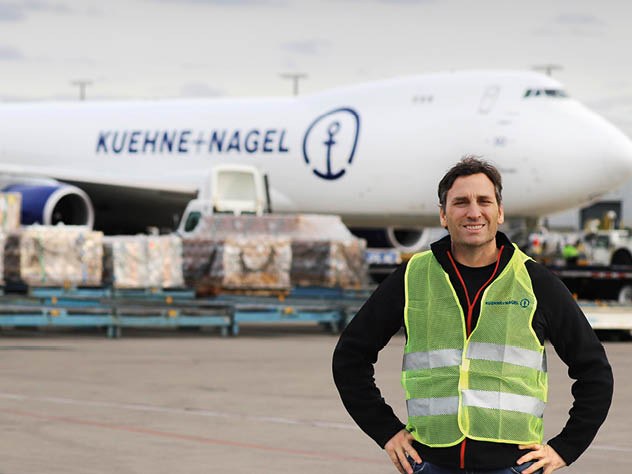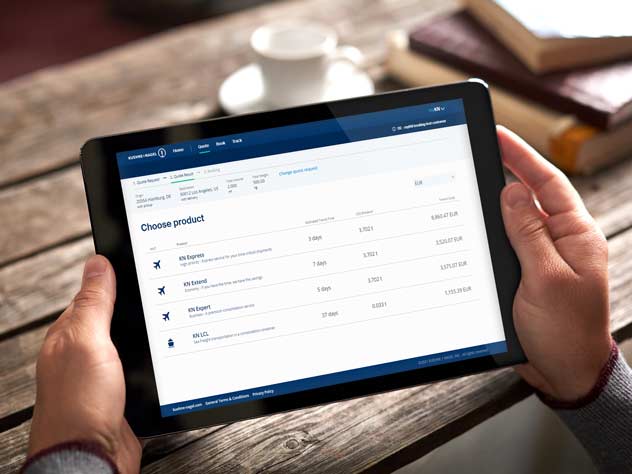Back Digitalisation in logistics
Market Insights
Digitalisation in logistics
Digitalisation and automation are changing the way industries operate, and companies who embrace these innovations have a strong advantage.
At Kuehne+Nagel, technology is one way we can support our customers to keep their promises and achieve their goals. With the intelligent use of technology, we simplify complexity in order to bring transparency to logistics. We employ integrated digital technologies that drive the automation of business processes.to make global, intermodal supply chains more transparent and efficient. This is part of an ongoing commitment to use technology to serve you. By integrating the latest technology into our products and services, we offer you a unified, global logistics network with inventive new applications.
We want to remove barriers and make it easier for you to do business. Through seamless data exchange between systems we enable automation and minimise manual efforts. This lets us focus on a new dimension of collaboration between partners and suppliers, based on full digital connectivity.
Technology in logistics offers a more productive supply chain that is safer, more sustainable and more efficient. Here are just some of the innovative technologies we’re using to optimise your supply chain:
-
Your systems integrate directly with ours thanks to Application Programming Interfaces (API's) that enable the smooth and automated exchange of information
-
Big Data turns unstructured information into valuable insights, helping you to make better decisions. This is particularly useful for predictive analytics and risk reduction
-
We apply machine learning and artificial intelligence for advanced pattern recognition that assists with quality management and predictive maintenance
-
Our Internet of Things (IoT) monitoring sensors track temperature, geolocation and other data in real-time during transportation so that we can assure quality, process efficiency and traceability.
-
Blockchain technology supports the tamper-proof exchange of data between partners and eliminates the need for additional communication channels overcoming trust and data security issues.










